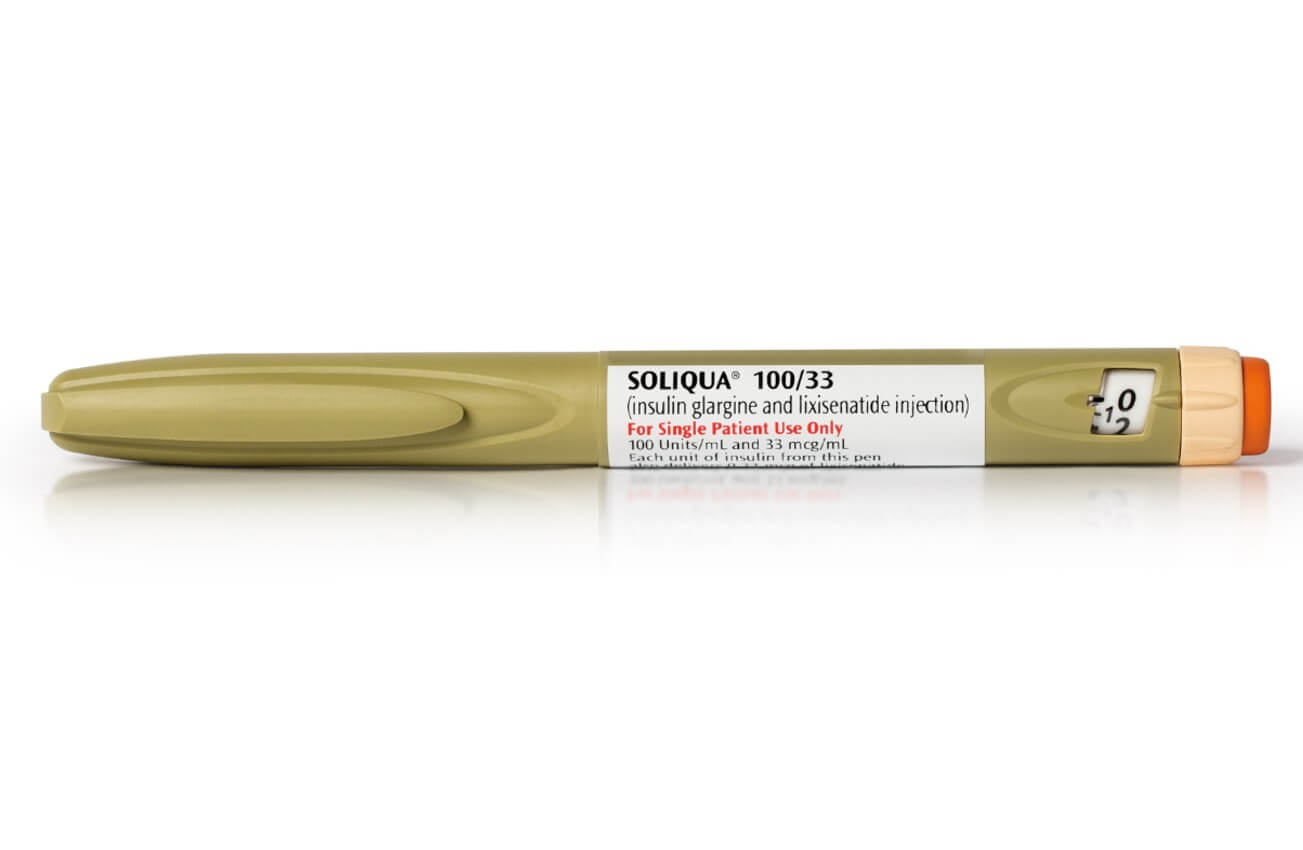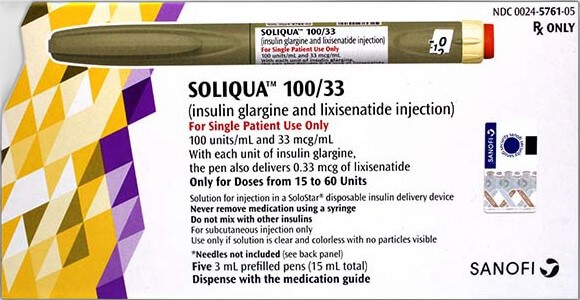Soliqua 100/33 (insulin glargine and lixisenatide) is a medication designed to help adults with type 2 diabetes manage their condition. It is a combination of two drugs: insulin glargine and lixisenatide. Insulin glargine is a long-acting insulin that helps regulate blood sugar levels over an extended period of time. Lixisenatide is a glucagon-like peptide-1 (GLP-1) receptor agonist that stimulates insulin production in response to high blood sugar levels and slows down digestion to reduce the amount of sugar absorbed into the bloodstream. By combining these two drugs, Soliqua can provide a more comprehensive approach to managing type 2 diabetes.
Soliqua is administered through subcutaneous injection, typically once a day. It is important to follow your healthcare provider’s instructions regarding dosage and timing of injections. Soliqua is intended to be used in conjunction with a healthy diet and exercise program, as well as regular monitoring of blood sugar levels.
Like any medication, Soliqua can cause side effects in some people. The most common side effects include hypoglycemia (low blood sugar), nausea, vomiting, diarrhea and injection site reactions such as redness, itching, or swelling. These side effects are usually mild and go away on their own within a few days or weeks of starting treatment.
Hypoglycemia can occur if the dose of Soliqua is too high or if you skip a meal. Symptoms of hypoglycemia can include sweating, shaking, headache, dizziness, blurred vision, confusion, and in severe cases, seizures or loss of consciousness. It is important to monitor your blood sugar levels regularly and be aware of the signs of hypoglycemia. If you experience symptoms of low blood sugar, you should eat or drink something containing sugar immediately, such as fruit juice, candy, or glucose tablets.
Less common but more serious side effects of Soliqua can include allergic reactions, pancreatitis (inflammation of the pancreas), and kidney problems. Signs of an allergic reaction may include rash, itching, swelling of the face, tongue or throat, difficulty breathing, and chest tightness. Pancreatitis can cause severe abdominal pain, nausea, and vomiting. If you experience any of these symptoms while taking Soliqua, you should contact your healthcare provider immediately.
If you experience any side effects while taking Soliqua, it is important to let your healthcare provider know right away so that they can help you manage any symptoms and adjust your treatment if necessary.
Drink plenty of water each day. Prepare an injection only when you are ready to give it. Do not use if the medicine looks cloudy, has changed colors, or has particles in it.
Soliqua is indicated for the treatment of type 2 diabetes in adults who have not achieved adequate blood sugar control with diet and exercise alone. It is intended for use in conjunction with a healthy diet and exercise program, as well as regular monitoring of blood sugar levels. Soliqua is not recommended for the treatment of type 1 diabetes or diabetic ketoacidosis.













